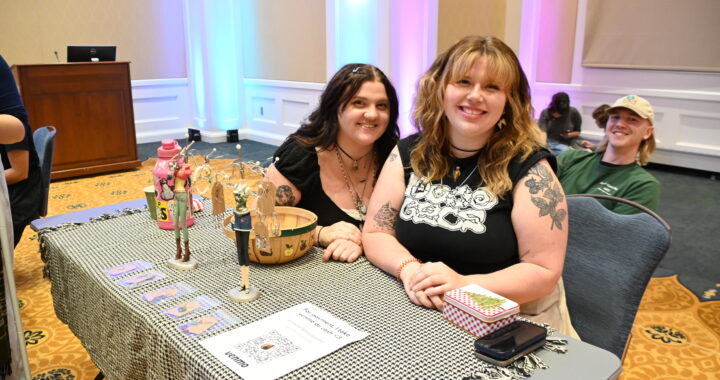Examining the trope of journalists in superhero comic books
4 min read
DC Comics
By HARRY FISHER
Online Editor
One of the biggest tropes in comic books seems to be the journalist character. It seems like in every superhero story, there’s always the reporter or the photographer who’s there documenting the actions of the hero, and presenting them to the public in either a positive or negative light. Sometimes, the hero himself is the journalist, using his resources as a reporter to get closer to a problem that needs solving, or a potential villain that needs to be investigated.
The image of Clark Kent investigating stories in his reporter attire is as iconic as him running into a phone booth to change into Superman. And of course, there’s the classic trope of Peter Parker taking pictures for J. Jonah Jameson, who ironically hates Spider-Man. But why is this trope of journalist characters so prevalent in comic books and other super hero media? What do these kinds of characters add to their stories, and why do they appear so often?
Several UMW students had their own opinions on the topic. “I think that the journalist character in comic books acts as a narrator in a way, but also acts as a sidekick to the hero or even the villain. It is interesting to think that Clark Kent is a decoy in order to protect Superman,” said Jamie McGuire, a senior English and communication and digital studies major. “Being that a reporter’s job is to reveal secrets or identity, many comic books make their heroes have a dual identity as the reporter to protect the hero’s secret identity.”
This is a good point about superheroes having journalist alter egos. Since Superman is secretly a reporter, he can prevent anyone from trying to investigate him and discover his secret identity.
“I’m not really into comics and superheroes but I really like that many of them are journalists because it subtly tells the consumer that journalists are smart, dedicated, and even valiant people,” said Ginny Bixby, a junior English and American studies major. “Especially in the current political climate where there is a lot of anti-journalist rhetoric, it’s really great to see journalists portrayed in a positive light in pop culture.”
This is quite possibly a big reason why the trope of super hero journalists is so popular. Journalists are often highly dedicated to bringing facts to their public audience, and they often have a positive impact on society because of it. Super heroes being portrayed as journalists is therefore a great way to show people just how “heroic” journalists can be.
“When a superhero is a journalist, it sort of gives them an excuse to be closer to danger, and both the character and viewer get more information,” said Riley Doherty, a sophomore English major. “I think it makes Peter Parker a more conflicted character, since he’s helping J. Jonah Jameson write stories about himself. I also really like Karen Page from the Daredevil TV series, because she’s a pretty realistic portrayal of a journalist and she’s not afraid to bend the rules.”
It’s true that super heroes who are journalists sort of give themselves a way to get closer to the action, since they’re able to use their alter egos to investigate potential threats and provide exposition in the story. But it can also create a moral conflict, as is the case with Spider-Man. Peter Parker doesn’t want to help Jameson keep publishing slandering articles about Spider-Man, but he doesn’t have much of a choice, since taking pictures for Jameson is his primary source of income in a lot of Spider-Man stories.
“Journalists in comics tend to have a determination that I find admirable, but it is also what gets them in trouble,” said Lauren Closs, a junior biology major. “They are dedicated to reporting the truth, which is extremely important. They’re not the bad guys, but just as they can cause some of the conflicts in comics, they are not always received favorably by the public in real life either. Nevertheless, they play an essential role in the plot and in the world.”
“Some of my favorite journalists in comics are Ben Urich and Lois Lane,” she said. “They don’t shy away from complicated or high-risk stories, but they also have strong morals. I think they personify the idea of regular people having a huge impact in a world much bigger than themselves.”
This is another good point, because comic book journalists aren’t limited to super heroes. Characters like Lois Lane and Ben Urich are prime examples of non-super powered characters who have a huge impact on the worlds they inhabit and often help the respective heroes they work with, due to the fact that they’re great journalists dedicated to the truth.
I find that many famous comic book universes would not be the same without these journalist characters. They add a certain real-world element to their stories, and often serve as a way for heroes to constantly be involved in the action of a story, even in their civilian lives. Additionally, these kinds of characters can add more tension to a story.
But perhaps the most important aspect of these characters is that they offer both positive and negative portrayals of journalists. In the case of characters like Lois Lane or Ben Urich, they show us how journalists can be heroes who help people in their own way, even if they don’t have super powers. In the case of characters like J. Jonah Jameson, they show us what happens when a journalist has too much bias and how their selfish actions can harm people. But in both cases, it’s easy to see why these characters are just as iconic as super heroes themselves.


